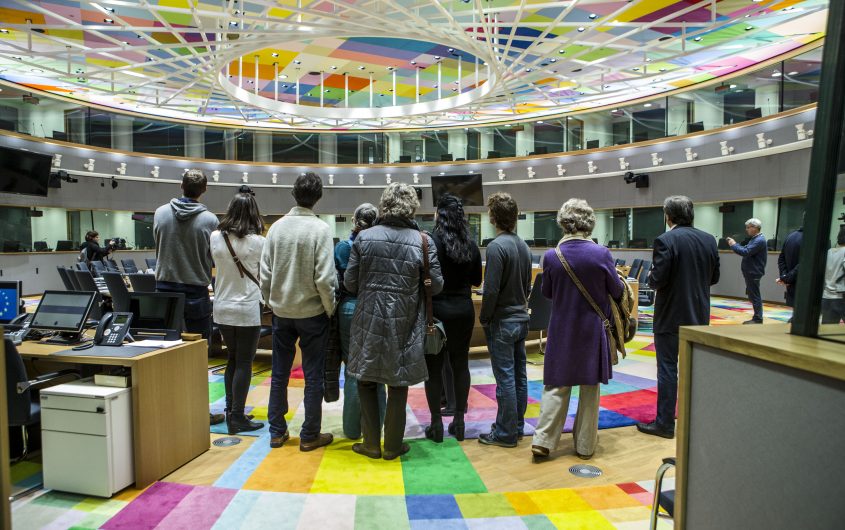
EU Cohesion Monitor 2019: The untold story of European resilience

Almut Möller
European Policy Centre
Almut Möller joined the EPC as Director for European and Global Affairs and Head of the Europe in the World programme in July 2024. She is a political scientist with professional experience in both think tanks and government. Her areas of expertise include EU institutions and politics, foreign and security policy, and multilevel governance, and she has published widely in these fields.
Prior to joining the EPC, she served as State Secretary and Plenipotentiary of the Free and Hanseatic City of Hamburg (2019-2024), representing the city state in Berlin, and at the European Union. In that capacity, she oversaw both the Berlin and Brussels representation offices and was a member of the Conference of Europe Ministers of the German Länder. She was also in charge of Hamburg's international relations, and the point of contact for the diplomatic and consular corps.
Before that, Almut was the Head of the Berlin office of the European Council on Foreign Relations (2015-2019), headed the Europe program at the German Council on Foreign Relations (2010-2015), and worked as an independent political analyst based in London (2008-2010). She started her career in think tanks as a researcher at the Centre for Applied Policy Research (C.A.P) at Ludwig-Maximilians-Universität in Munich (1999-2008).
Almut was a guest researcher at Renmin University of China in Beijing (2006), Al Ahram Center for Political and Strategic Studies in Cairo (2007), and at the American-German Institute (AGI) at Johns Hopkins University in Washington D.C. (2008).
She was a 2016-2017 participant in AICGS’ project “A German-American Dialogue of the Next Generation: Global Responsibility, Joint Engagement,” sponsored by the Transatlantik-Programm der Bundesrepublik Deutschland aus Mitteln des European Recovery Program (ERP) des Bundesministeriums für Wirtschaft und Energie (BMWi).
The dominant narrative about the European Union over recent years has been one of fragmentation. Indeed, there are visible signs of a union struggling to mobilise collective action – on eurozone reform and European security, for instance – and even crumbling, with one of its largest members, the United Kingdom, on its way out. And there are significant portions of electorates in almost all member states backing sovereigntist and anti-EU parties that challenge cooperation under the EU umbrella.
Yet there is another story to tell: the story of the breath-taking resilience of the EU even in light of the economic and political crises of the past decade. There is obviously a powerful glue that holds EU countries and societies together. This has prevented the union from falling apart at a time of great stress.
In 2015, ECFR set out to better understand what makes EU countries and societies stick together. We wanted to shed light on Europe’s state of cohesion, a theme that has been vital to the very idea of European integration right from its start in the 1950s. We thought that despite the centrality of cohesion to the future of the EU there had been little understanding of the building blocks of cohesion so far. The EU Cohesion Monitor developed to fill that gap is a data-based tool which allows users to better understand the variety of factors that contribute to cohesion – or lack thereof. Its third edition is published this week.








